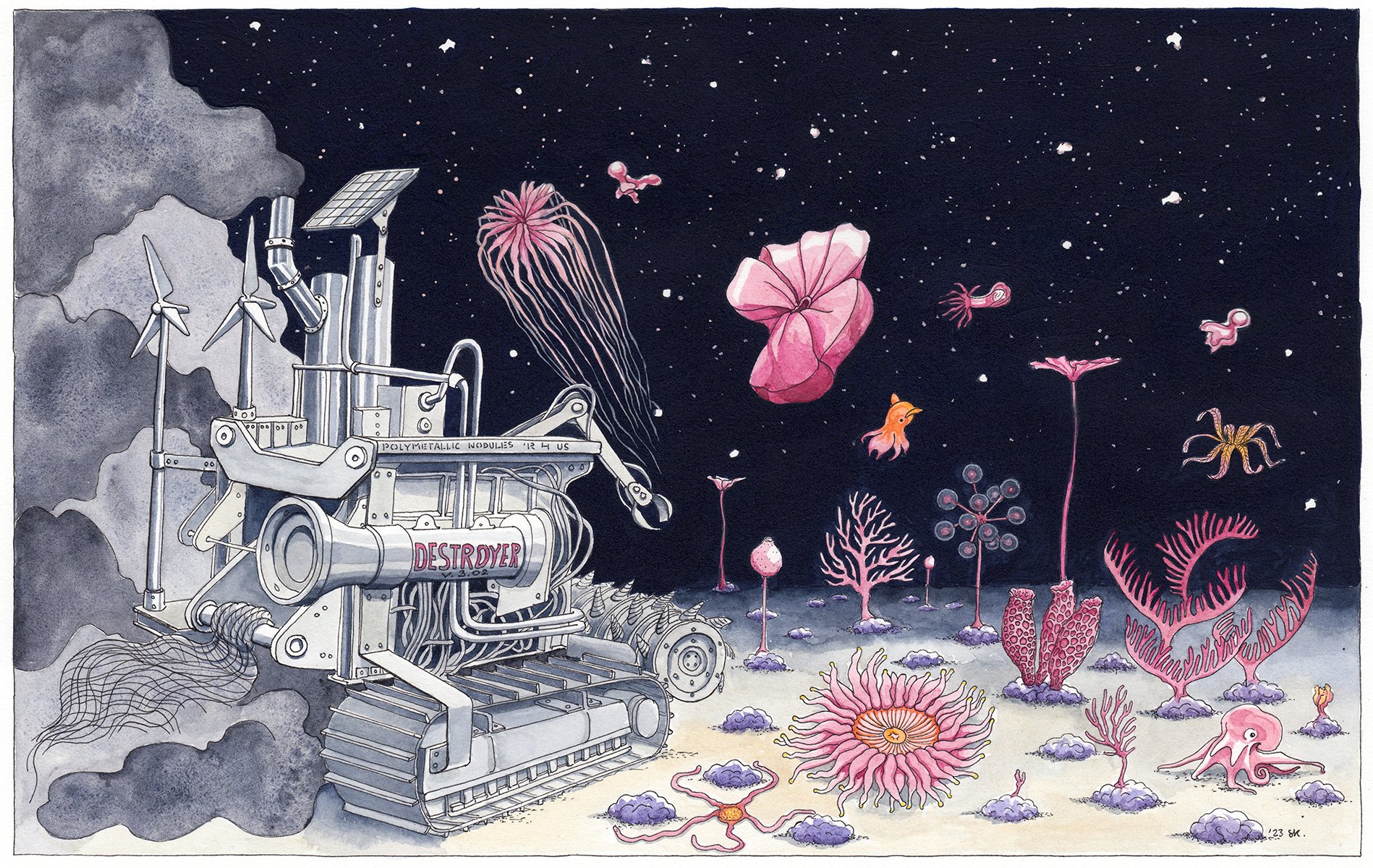Deep Sea Mining
During June we have been hosting an ocean conservation/protection challenge.
Today’s prompt was about the Deep Sea and I dived into this world without much knowledge.
I came out a little shocked about the project of mining it.
The Challenge
Every June @forplanetocean challenge on instagram. The prompts of 2023:
1st- 🐠 coral reef: Rainforests of the sea
8th- 🌊 World Ocean Day: Blue mind
15 - 💙 Artivism: Protect What We Love
22- 🦑 Deep Sea: Mysterious Depths
29- 🌿 Seagrass: Planting a Future!
This year, we’re partnering with @projectseagrass who will be planting up to 10,000 seagrass seeds.
Project Seagrass is an environmental charity devoted to the conservation of global seagrass ecosystems through research,
community and action. Seagrasses are marine plants that live in shallow, sheltered areas around our coast. They provide a variety of essential ecosystems, including storing carbon, producing oxygen, stabilising our coastlines, improving the water quality and clarity of our oceans, and increasing ocean
biodiversity.
This year’s hosting artists are @belowandbeyondart • @junoniaarts • @janinarossiter • @rachelbrooksart • @blackscatter • @vegan.frank • @petitplat • @zoeellison__ • @yetiglesias • @poppyli.art • @wildlife_erra • @iruksson • @jmsillustrates • @emmalopesart
Deep Sea Mining
Deep sea mining is the process of sending a machine deep down to gather so-called polymetallic nodules. Those nodules are made of the rare metals we need for batteries, and the argument is that deep sea mining is less destructive that the current earth mining we are doing.
The second argument is that we need those rare metals in order to push the green energy transition.
The issue here is that the “green energy transition” is a complete myth.
Renewable energies have not started replaced fossil ones, they have just been added on top of the other ones.
We actually use a lot of fossil energies in order to retrieve green energies.
Below a graphic of the evolution of energy consumption:
Global direct primary energy consumption - source: Our World in Data
As you can see there is a visible dip in 2020 that was due to Covid.
There has also never really been much energy transition, as energy sources work together, access to one helps you to retrieve more of another and overall you consume more and more every year.
Back to the rare metals, they are mostly needed for batteries, think all the electronics you have at home, computer, smartphone and also electric cars.
Now electric cars are not the solution of transportation, it’s a lot of energy wasted to transport only 1 to 4 people. Trains are a much more efficient ways of transporting people and goods. Cities also should promote walking and biking. Which means that cities should densify instead sprawling out into houses with a surrounding garden and pool.
I would also like to note that wind turbines and solar panels aren’t very good at producing energy. While the idea was good, in practice you have to change the turbines and panels every couple of years and producing those requires a lot of ressources and energy.
Deep Sea Ecosystem
The biggest threat of deep sea mining is the destruction of deep sea habitat.
Polymetallic nodules are special, because at that sea level there’s only sand and those nodules are the only rock formation that exist. They are the base of many living forms, most notably corals and sponges, who exists in the most alien shapes and forms and whose existence create a living habitat for beings that move, like fishes, squids, octopi, worms or nudibranchs.
Deep sea exploration is very tricky so we don’t know much about those ecosystems, we do know that they are much richer than originally anticipated.
What now?
The only viable option we truly have is to drastically reduce our energy consumption and consumption overall.
Which means a societal change. If we’re up to it, that’s another question that I don’t dare answer.
If you watch only one thing this week:
The energy crisis explained by Jancovici https://youtu.be/s254IPHXgVA
Deep mining ressources:
The deep sea ecosystem:
https://www.bbc.com/future/article/20230209-how-deep-sea-creatures-are-discovered
https://oceanbites.org/life-in-the-abyss-the-ecological-impacts-of-deep-sea-mining/
Energy consumption https://ourworldindata.org/grapher/global-primary-energy
The energy crisis explained by Jancovici https://youtu.be/s254IPHXgVA


